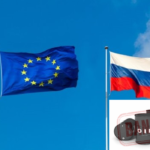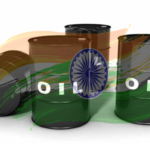The European Union will allow transactions needed for Russian stated owned companies; Rosneft and Gazprom to sell oil to third countries.
According to a statement released by the EU Council on Thursday, Rosneft and Gazprom may now be able to ship oil to third countries.
Also read: Energy gaint Uniper gets $15bn bailout from the German Government
According to the statement seen by Investogist, the council said that in response to Russia’s continuing war of aggression against Ukraine, it adopted new measures intended to tighten existing economic sanctions targeting Russia, perfect their implementation and strengthen their effectiveness.
However, the EU council said it would exempt transactions with certain state-owned entities as regards to transactions for agricultural products and the transport of oil to third countries, all in a bid to avoid potential negative consequences for food and energy security.
With a view to avoid any potential negative consequences for food and energy security around the world, the EU decided to extend the exemption from the prohibition to engage in transactions with certain state-owned entities as regards transactions for agricultural products and the transport of oil to third countries.
More broadly, the EU is committed to avoiding all measures which might lead to food insecurity around the globe. None of the measures adopted today or earlier in view of Russia’s actions destabilising the situation in Ukraine target in any way the trade in agricultural and food products, including wheat and fertilisers, between third countries and Russia.
Similarly, EU measures do not prevent third countries and their nationals operating outside of the EU from purchasing pharmaceutical or medical products from Russia.
This provision means that Russian state-owned companies, including Rosneft, Gazprom Neft, and Sovcomflot, are now allowed to conclude deals with Europeans on the transport of oil to third countries.
In March, the EU introduced a ban on transactions between European companies and Russian corporations, including energy majors Rosneft, Transneft, Gazprom Neft, and Russia’s largest shipping company Sovcomflot, among others. Transactions involving the import or transportation of natural gas, oil, petroleum products and a number of metals were initially allowed as exceptions.
However, as part of the sixth sanctions package introduced last month, the EU imposed a partial embargo of Russian oil, banning sea shipments of oil to the EU and prohibiting European companies from insuring and reinsuring sea shipments of Russian oil and oil products to countries outside the European Union.
As a result, major energy players such as Vitol, Glencore, Trafigura, Shell and Total stopped trading Russian oil for third countries. Now, however, they will be able to resume business with Russia. The legal details of the new provision will be published in the Official Journal of the EU.
The EU however introduced a new prohibition to purchase, import, or transfer, directly or indirectly, gold, if it originates in Russia and it has been exported from Russia into the EU or to any third country after. This prohibition also covers jewellery.
The package also extends the list of controlled items, which may contribute to Russia’s military and technological enhancement or the development of its defence and security sector, thereby reinforcing export controls on dual use and advanced technology.
Furthermore, the new measures extend the existing port access ban to locks to avoid the circumvention of sanctions and expand the scope of the prohibition on accepting deposits to include those from legal persons, entities or bodies established in third countries and majority-owned by Russian nationals or natural persons residing in Russia. The acceptance of deposits for non-prohibited cross-border trade will be subject to a prior authorisation by the national competent authorities.
In addition to economic sanctions, the Council decided to list additional individuals and entities and strengthen reporting requirements, putting the burden of declaring assets onto sanctioned people, in order to facilitate the freezing of their assets in the EU.
Nnamdi Maduakor is a Writer, Investor and Entrepreneur





















































